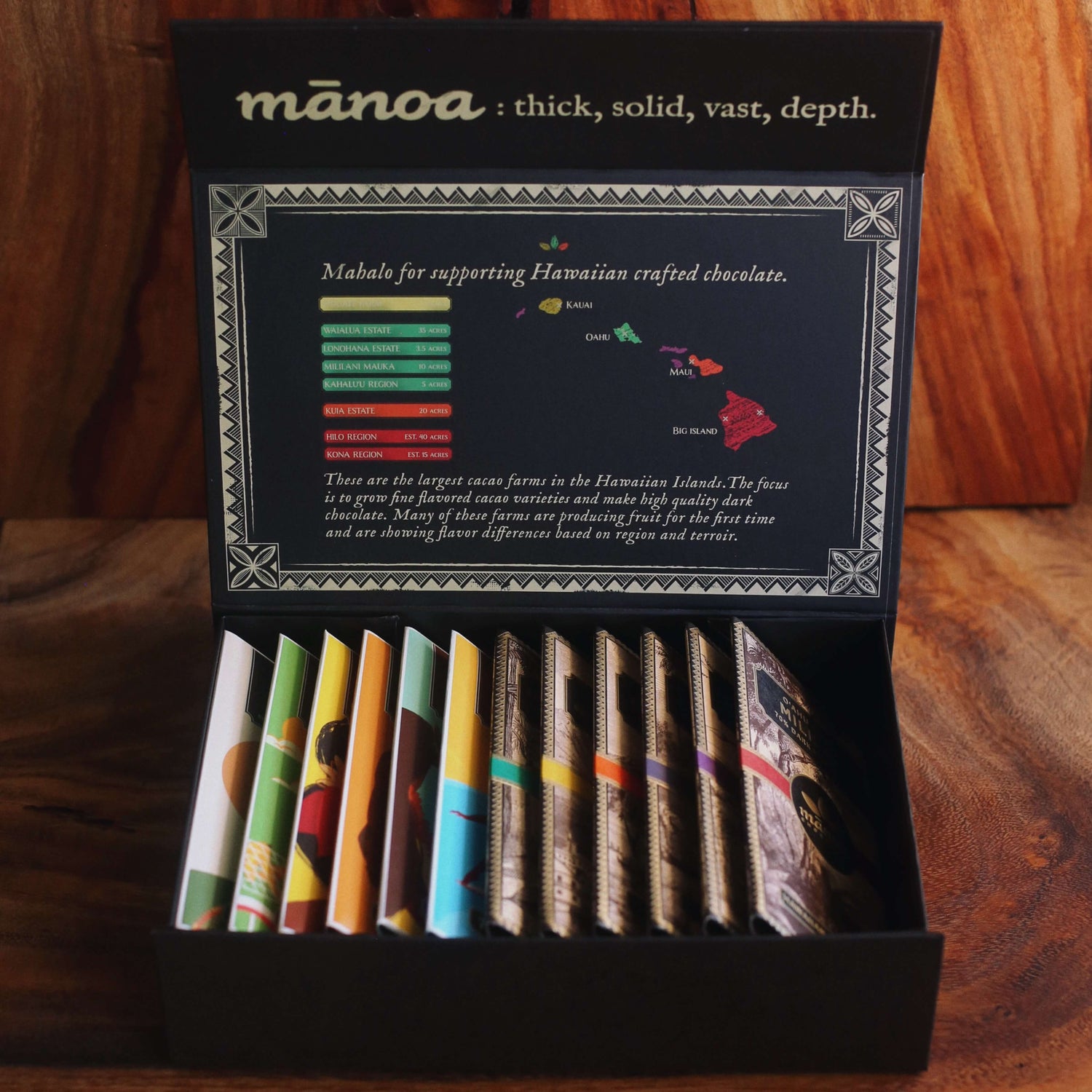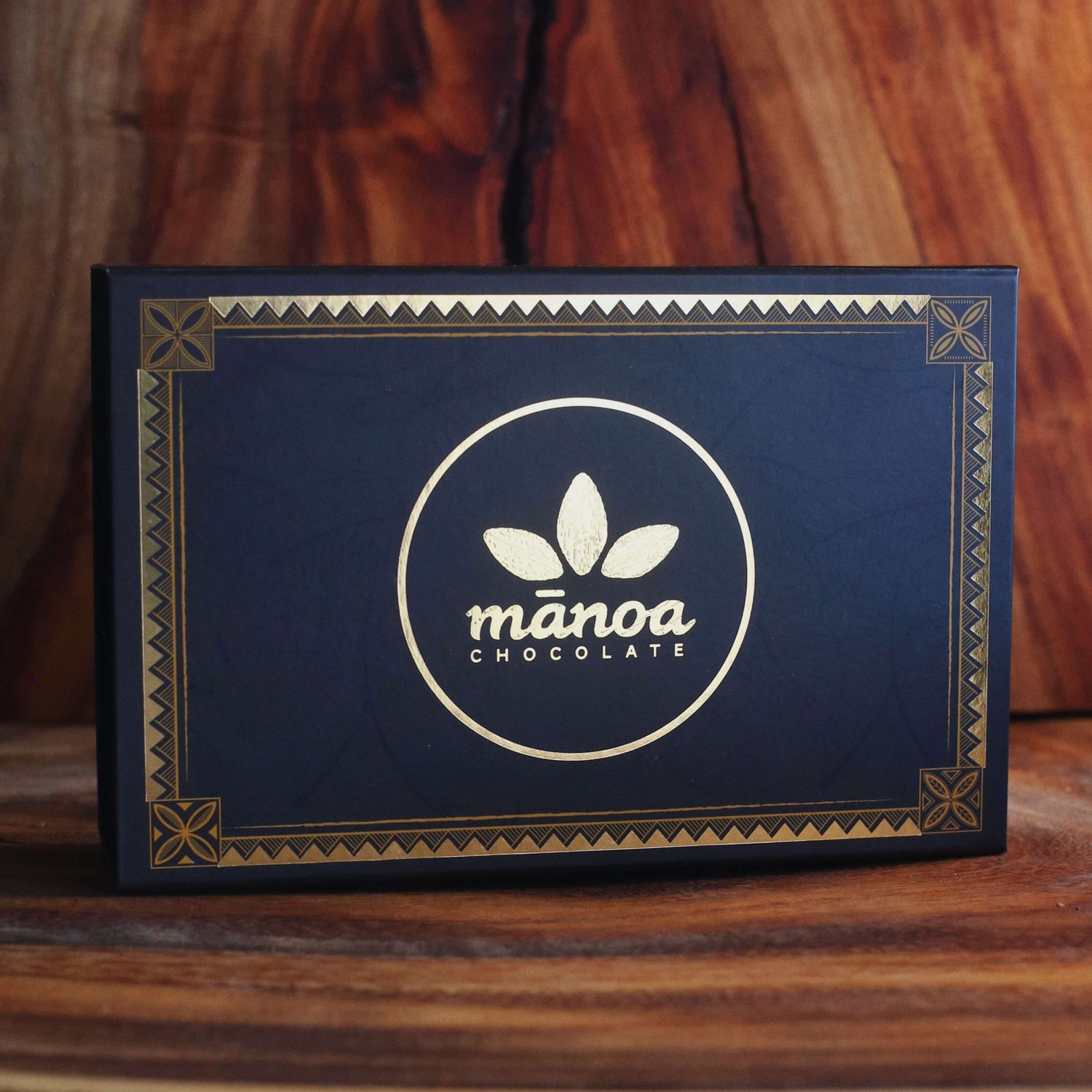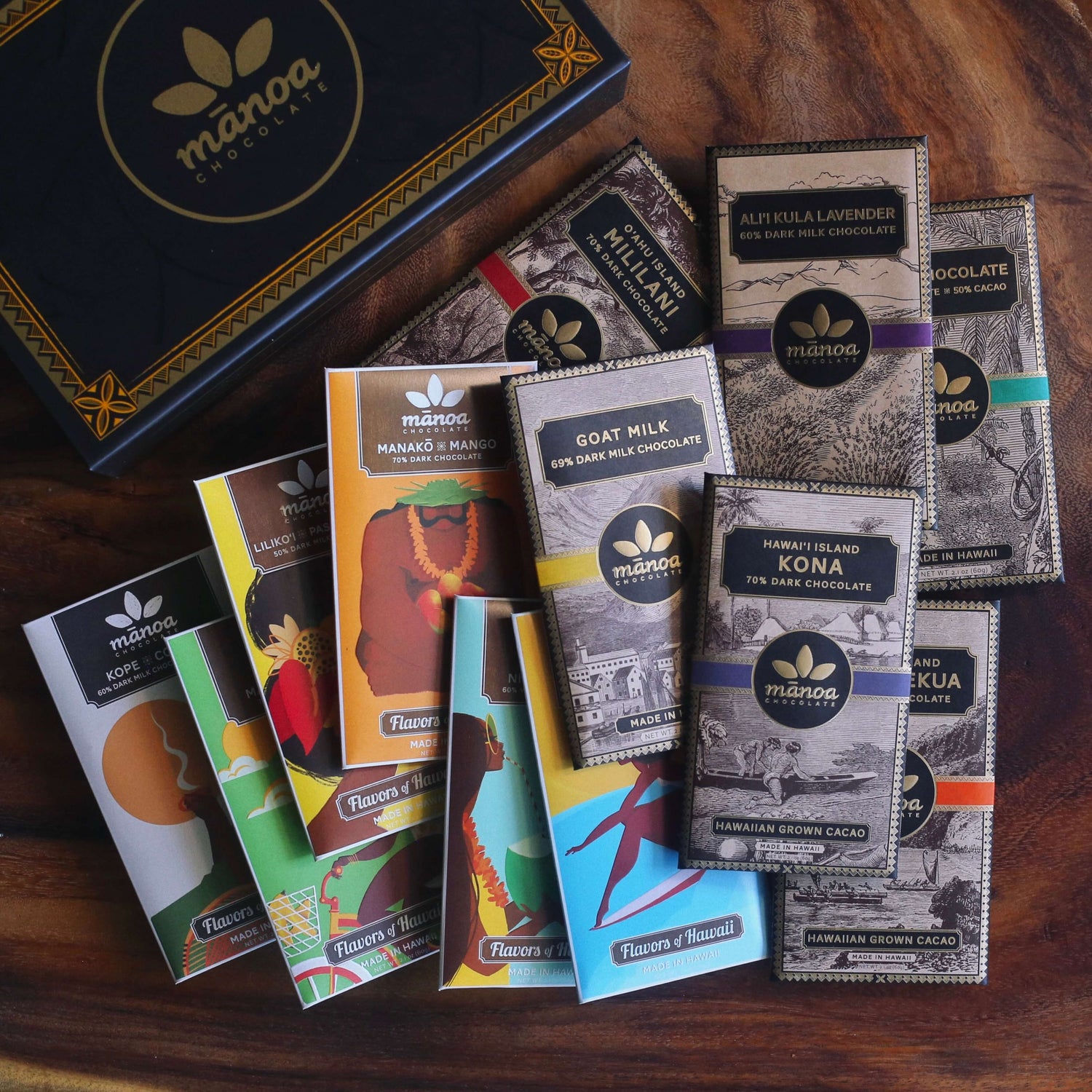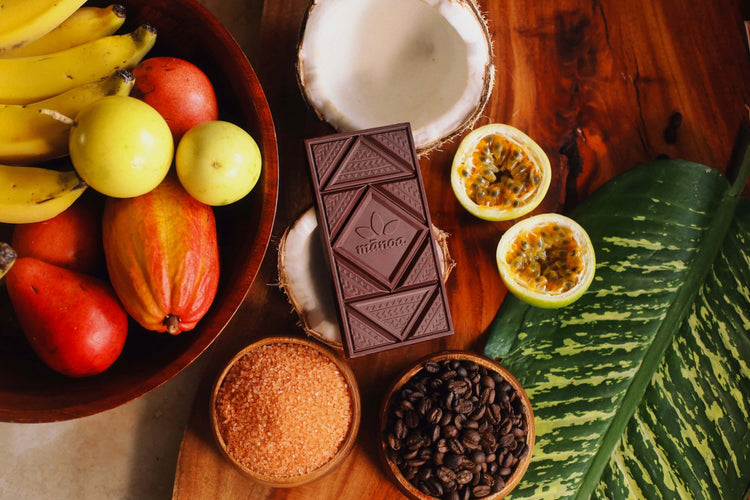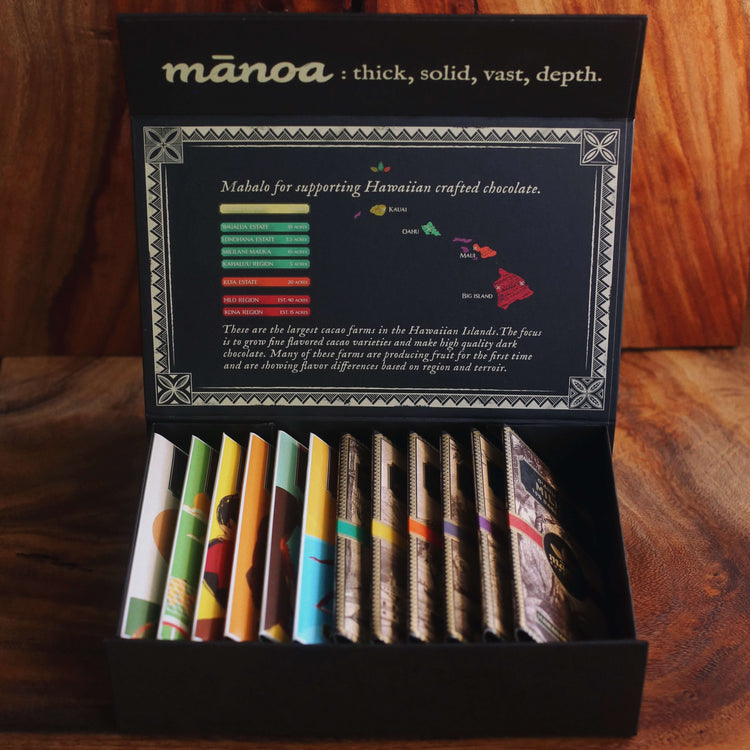
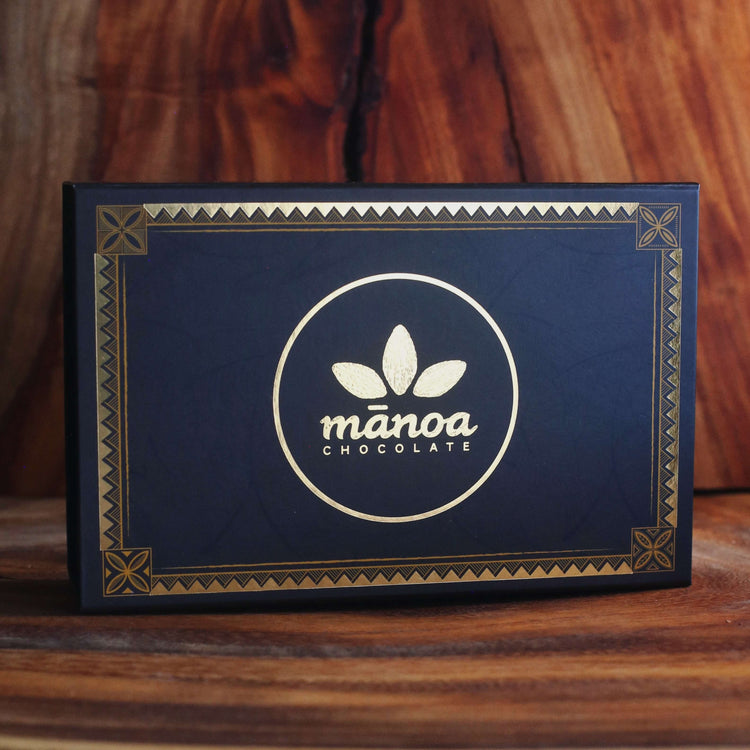
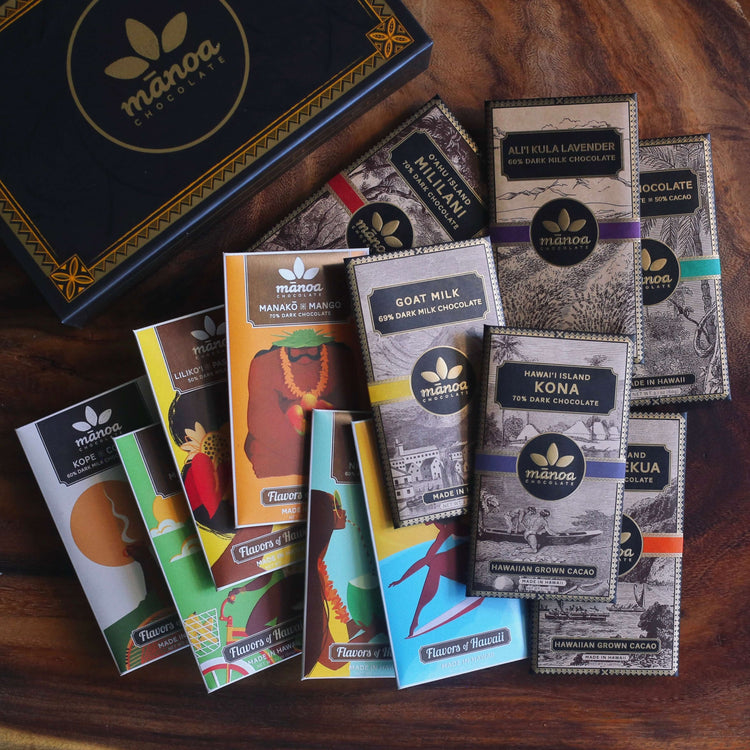
included in this collection
-
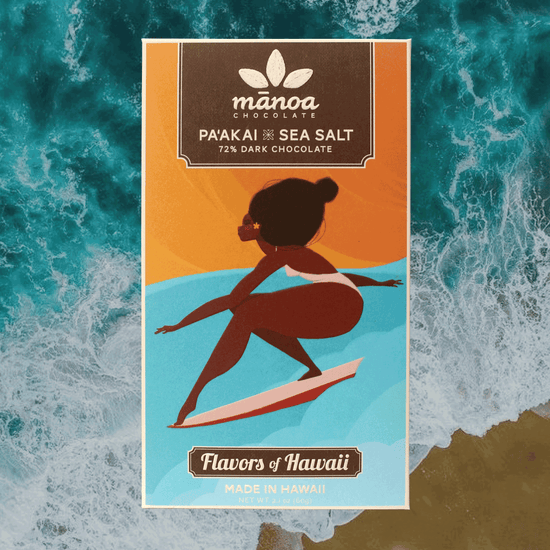
paʻakai x sea salt
In ancient Hawaiʻi, paʻakai (sea salt) was used in food preservation, religious & ceremonial purposes, and as medicine. Paʻakai was collected from rocky shoreline pools, and on a larger scale Hawaiians harvested salt from man-made clay ponds; a method still practiced today.
-
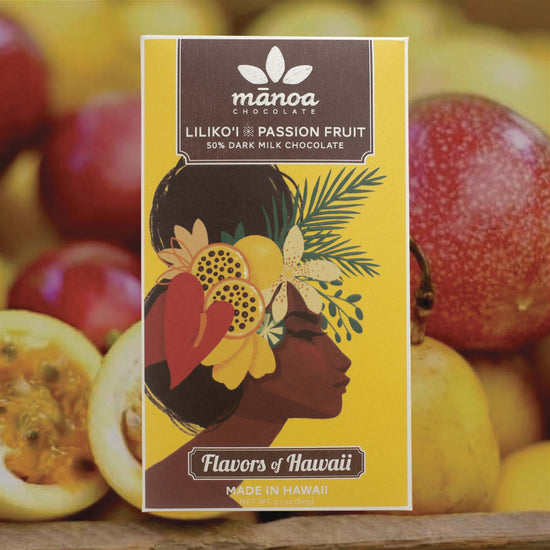
lilikoʻi x passion fruit
When the seeds of passion fruit first came to Hawaiʻi from Australia in 1880, they were planted in the East Maui district of Lilikoʻi and the name stuck. Inside, the fruit is filled with an aromatic mass of juicy pulp and edible seeds. The juice, with its distinct tangy flavor, is a popular ingredient in Hawaiian cuisine, used to make sauce, candy, ice cream, tea, or in cocktails and shave ice.
-
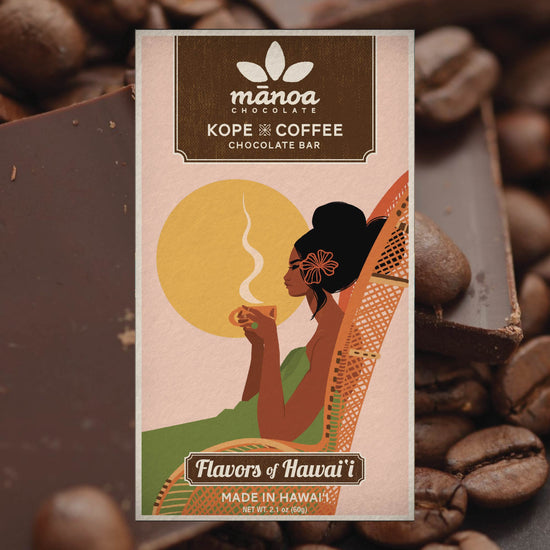
kope x coffee
Coffee plantations first emerged in Hawaiʻi in the mid 1800’s. From then the crop has thrived, with over 8,200 acres planted across the state. Here in Hawaiʻi, more farms now grow coffee than any other crop, and we are proud to be able to source locally grown coffee for this bar. The infusion of Hawaiian coffee (kope) into creamy dark milk chocolate and a sprinkling of crunchy cacao nibs make this the ideal chocolate breakfast bar.
-
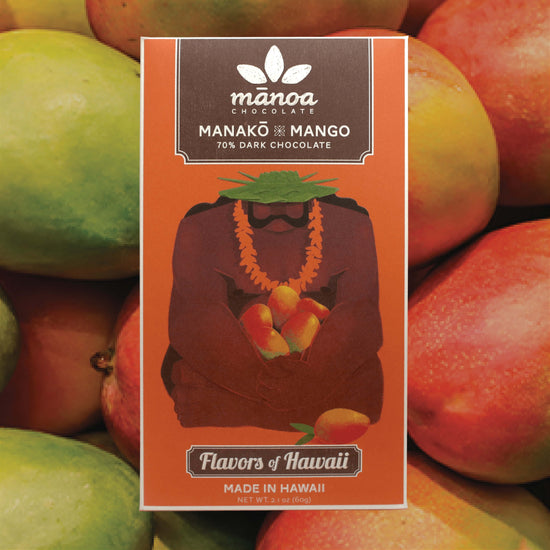
manakō x mango
Historical accounts suggest Mangoes first arrived in the Hawaiian Islands before 1825. In Hawaiʻi the fruit thrives with over 500 varieties across the islands! Mango season is a highlight of summer in Hawaiʻi and brings a pleasant sweet to the heat. It is widely consumed fresh or preserved through pickling, chutney, and sauces.
-
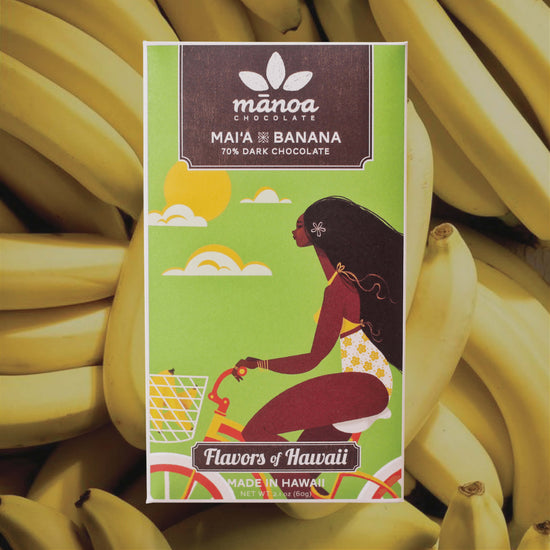
maiʻa banana
The Polynesian settlers brought with them mai'a (banana) on their long voyage to Hawaiʻi. It is known as a canoe plant - a crop essential for island living. Not only was maiʻa used as sustenance, but as an offering to aliʻi (ruling chief), a highly regarded gift, and as medicine for various ailments. Fruit was scarce in ancient Hawaiʻi and banana was one of only a handful available.
-
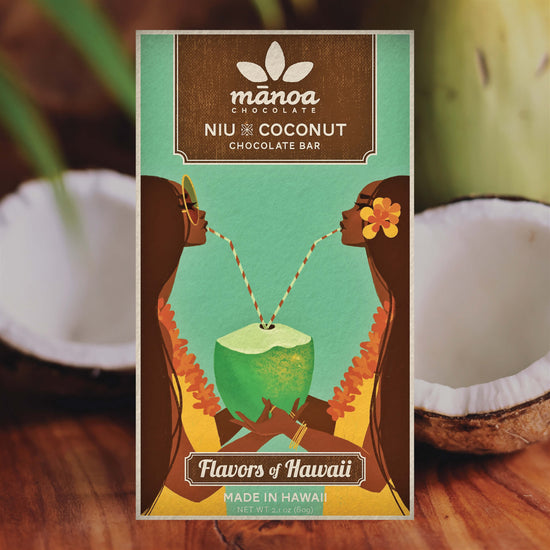
niu x coconut
The Polynesians settlers brought coconut on their long voyage to Hawaiʻi. It is known as a canoe plant - a crop essential for island living. The coconut provided a source of food, water, and useful crafting material. The Hawaiian word for coconut is niu; our storefront sits on Uluniu St. in Kailua, named for the groves of coconuts that once filled the area.
-
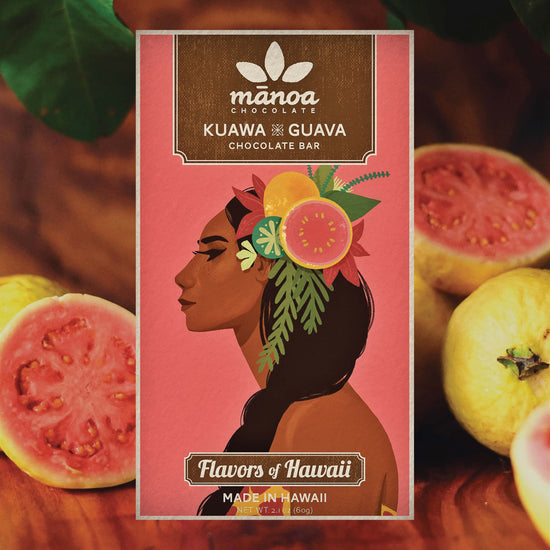
Kuawa x Guava
Guava was introduced to Hawai‘i during initial Western contact in the 1700s. It has spread rapidly and is now considered the Hawaiian islands’ most prolific wild fruit. Guava’s flavor is uniquely tart and sweet, commonly described as a hybrid between a strawberry and a pear. In Hawai‘i the fruit is predominately consumed fresh, in the form of juice, and in jellies and jams.
-
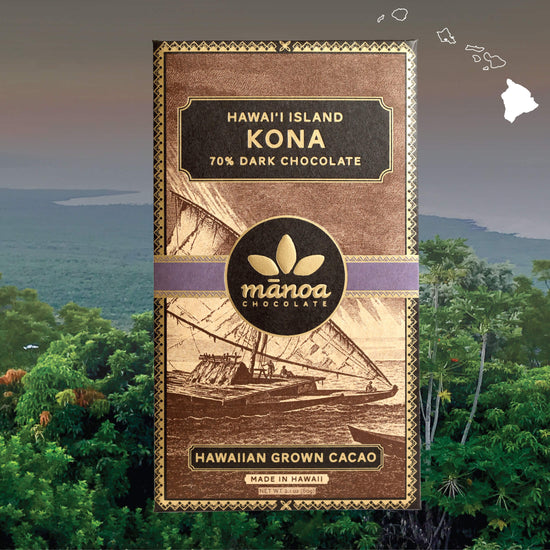
Kona, Hawaiʻi Island
The Likaʻo Kula Farm in Kona is one of our oldest sources of Hawaiian cacao. They have always been a reliable source for some of the highest quality beans in Hawaii. In 2017 at one of the largest chocolate festivals in the world, the Salon Du Chocolat in Paris, these Hawaiian grown beans from Kona won top 15 best flavored cacao in the world.
-
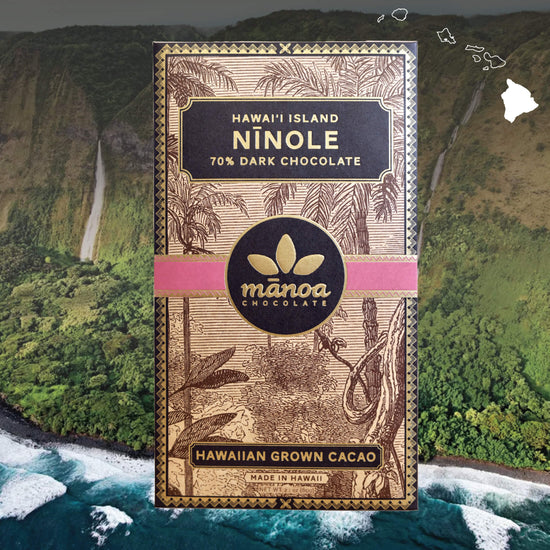
NĪnole, Hawaiʻi Island
The Hawaiian cacao in this single origin chocolate bar comes from Nīnole Cacao, located on the lush Hamakua coast of Hawai‘i Island. This seven acre orchard was established in 2019 and hosts about 2000 cacao trees. The first harvests began in the summer of 2022.
-
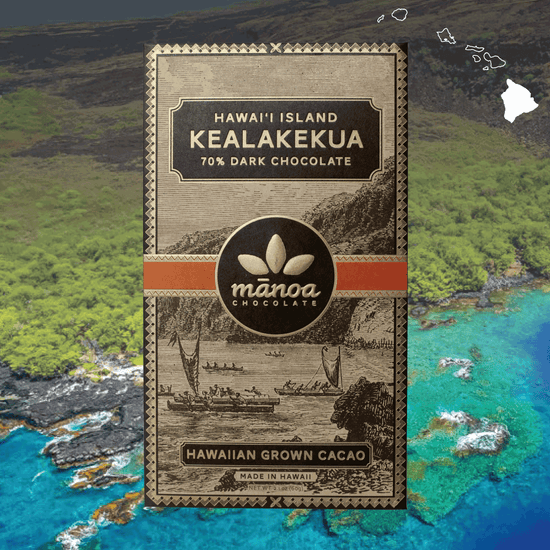
Kealakekua, Hawaiʻi Island
Located on the west side of Hawaiʻi Island (the Big Island), Kealakekua is hot and dry. Normally, cacao trees would be unable to survive the harsh lava field conditions, but with irrigation they thrive. The cacao of this chocolate bar is farmed, fermented and dried by the Hard Rock Gardens Estate in Kealakekua.
-
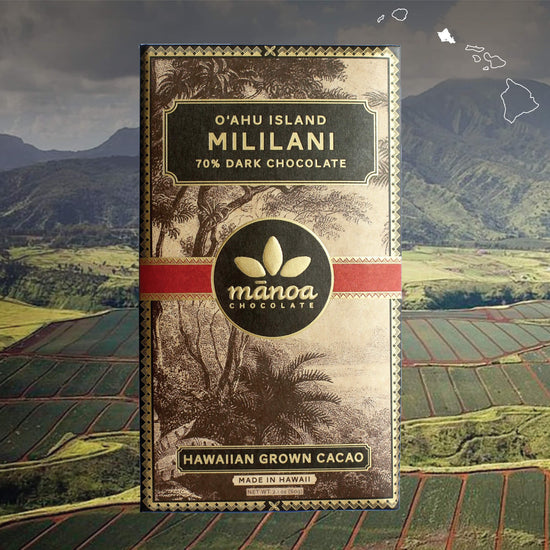
Mililani, Oʻahu Island
The Hawaiian cacao of this single origin chocolate bar originates from Mililani Estate in central Oʻahu. This diverse 97 acre farm hosts crops of breadfruit, banana, avocado, taro and 10 acres of cacao. Their first ever cacao harvest occurred in late 2019 as the trees turned three years old. The chocolate produced from this Estate is some of the most bright and fruity we've ever made. After only a few months of being available, this bar has won multiple awards, including gold for Best Dark Chocolate at the prestigious Chocolate Aliance Awards.
-
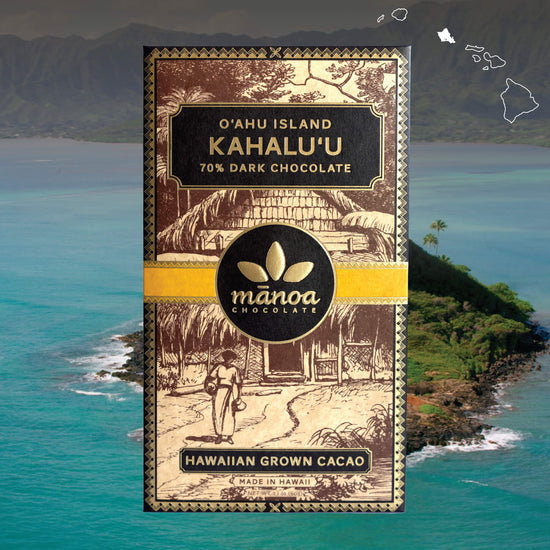
Kahaluʻu, Oʻahu Island
Twenty minutes from our chocolate factory, back in rainy Kahaluʻu valley, lush vegetation and rainfall make excellent growing conditions for cacao. Since 2017 we’ve been working with Ben Field, a local Kahaluʻu farmer who not only grows, ferments, and dries his own cacao, but does so for his neighbors and farmers around the Island. Ben and this farming cooperative are one of our largest suppliers of Hawaiian grown cacao.
-
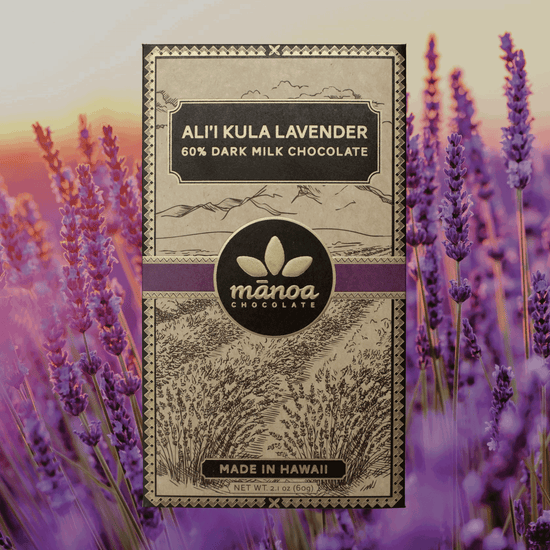
Aliʻi Kula Lavender
In the Upcountry region of Maui nestled in the slopes of Haleakalā, is the beautiful Aliʻi Kula Lavender Farm. We infuse our chocolate with their dried Maui lavender flowers, accenting it with just the right amount of floral flavor.
-
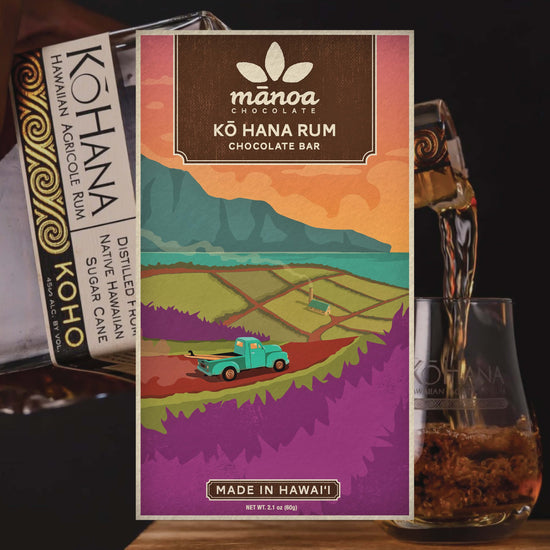
Kō Hana Hawaiian Rum
We teamed up with local rum distiller Kō Hana to create this bar. Kō Hana Agricole Rum is meticulously crafted from farm to bottle. They grow single varietal sugar canes that are hand harvested, pressed to juice and distilled to perfection - resulting in one of the world's finest pure cane rums. Our cacao nibs are soaked in their rum, which we then process into chocolate.
-
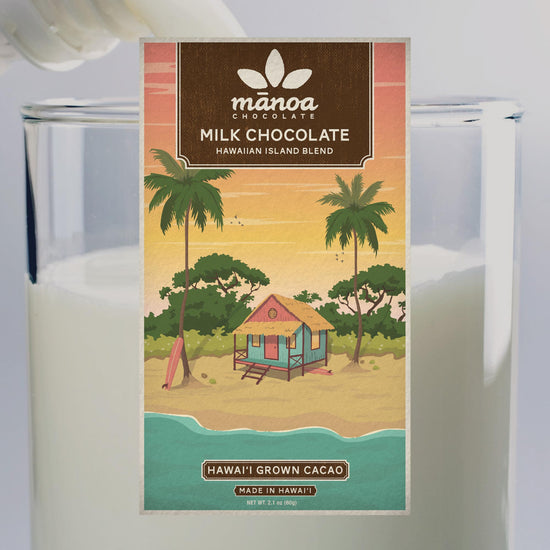
Hawaiʻi Milk
For this chocolate we hand select beans from quality cacao producers across the Kona and Hilo regions of Hawaiʻi Island (the Big Island). This is our only milk chocolate produced from Hawaiʻi grown cacao. It is crafted in a Belgium/Swiss style of chocolate making that uses milk to bring out a creamy, caramel mouthfeel and flavor.
-
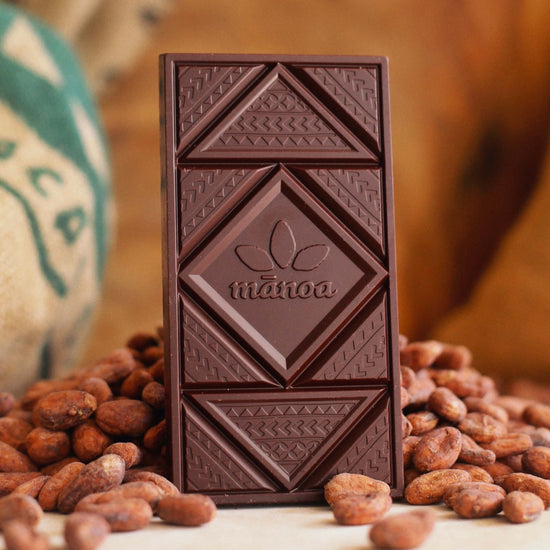
wild card
made in hawaiʻi
All of our chocolate is crafted from bean-to-bar at our chocolate factory in Kailua, Oʻahu.
direct trade cacao
We're buying cacao direct from the farmer. This allows us to establish long lasting relationships based on trust and quality. By cutting out intermediaries we can also pay our farmers higher prices for their crop.
sustainably packaged
Each chocolate bar is packaged using recycled paper and wrapped in a biodegradable plant-based fiber


